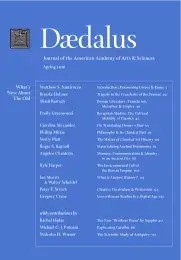Roman Literature: Translation, Metaphor & Empire
The Romans understood that translation entails transformation. The Roman term “translatio” stood not only literally for a carrying-across (as by boat) of material from one country to another, but also (metaphorically) for both linguistic translation and metaphorical transformation. These shared usages provide a lens on Roman anxieties about their relationship to Greece, from which they both transferred and translated a literature to call their own. Despite the problematic association of the Greeks with pleasure, rhetoric, and poetic language, the Roman elite argued for the possibility of translation and transformation of Greek texts into a distinctly Roman and authoritative mode of expression. Cicero’s hope was that eventually translated Latin texts would replace the Greek originals altogether. In the end, however, the Romans seem to have felt that effeminacy had the last laugh.
Recent work on Roman literature has turned to the act of translation as a fundamental and defining feature of the Roman literary corpus. The focus on translation is not new, per se; both the Romans and the scholars who have written about them acknowledge that Roman literature originated in the appropriation and translation of Greek texts. Roman literature was thus already “secondary,” “belated,” “imitative,” even as the Romans mused on the paradox of taking to their collective bosom the literature of a conquered empire. What is novel about the current approach is the understanding that Roman discourse on the origins of their literature entailed a complicated ideological battle fraught with implications for their social, cultural, and political thought. Recent scholarship has focused, inter alia, on literary production as a tool for elite self-definition; on the creative nature of what the Romans loosely called “translation”; on Roman epigraphy and how Greek source-texts are treated in Roman inscriptions.1 What is already clear is that the notions of “imitation,” “translation,” and “transmittal” that were so basic to the old denigration of Roman literature actually involved creative processes that laid down a challenge to their source-texts, provided grounds for competitive claims within Roman culture, and ultimately fed into a broad nexus of concerns about foreign influence, native character, and the dangers of empire. . . .
